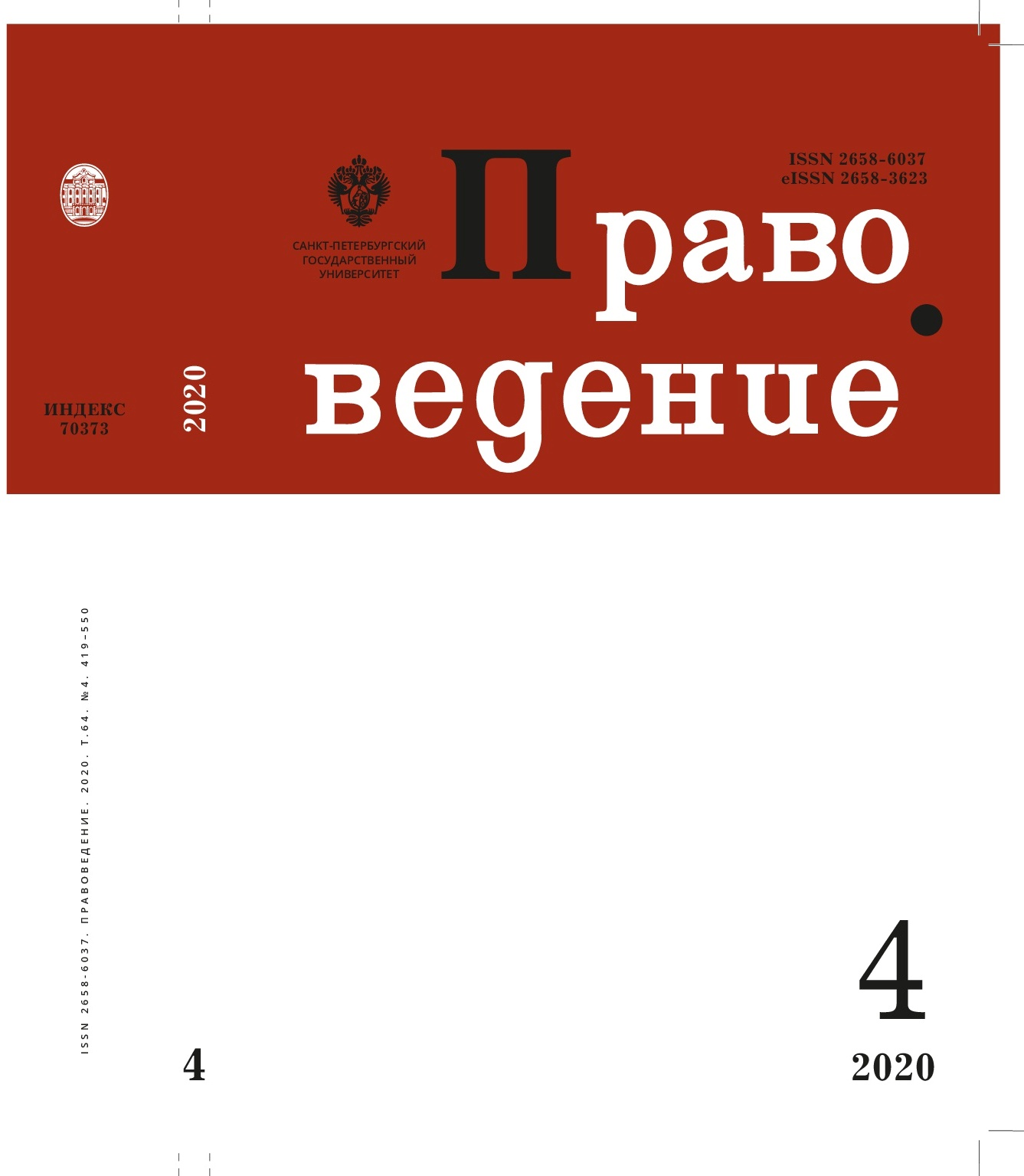Trust and reasonable expectations in contracts — values that always matter (from the perspective of Polish private law)
DOI:
https://doi.org/10.21638/spbu25.2020.402Abstract
Will a situation where the “competitive contract law” is developing alongside the classical contract law inevitably lead to a clash of these two contractual worlds? It has been suggested that there is a kind of “competition” between modern contract law and the classical one, with the final result seen in terms of a zero-sum game. The alternative is to perceive this phenomenon not as a “competitive arena” but a “cooperative one” (with a win-win result). By analogy to architecture, it means a peaceful refurbishment, where the foundation is preserved and the rest can be rebuilt in such a way that the whole construction will be solid and serve for decades. Some institutions of traditional contract law, altogether with their traditional functions, create elements that can make the whole construction stable and impervious to unforeseen and atypical situations. This article takes a close look at the three mechanisms present under the provisions of Poland’s Civil Code, namely interpretation (Article 65), supplementation (Article 56) and setting out obligations according to due performance (Article 354), which are based on traditional contract criteria, namely trust and reasonable expectations. The perspective of Polish law is presented with some references to Chinese law and culture, as this helps show that certain traditional criteria are recognised and do matter in different legal cultures. These traditional criteria of a contextual nature determine the meaning and content of contracts in almost every legal order and in model law. They can be seen as the elements that strengthen and stabilise the whole construction of contract law. The author raises the question whether nowadays a serious surgical intervention to the extent of contract law is necessary, or whether a delicate face-lifting would be sufficient (if at all). This question refers mainly to trust as a soft but crucial contractual tool at each contracting stage. The article presents the approach whereby trust (in particular), when acting as a unilaterally understood functional instrument, can reconcile the world of traditional contract law with the modern one. In other words, trust is recognised as a vital element connecting not only different legal cultures, but also traditional contract law with the modern one.
Keywords:
trust, reasonable expectations, loyalty, fairness, contract law, general clauses
Downloads
References
Downloads
Published
How to Cite
Issue
Section
License
Articles of "Pravovedenie" are open access distributed under the terms of the License Agreement with Saint Petersburg State University, which permits to the authors unrestricted distribution and self-archiving free of charge.




